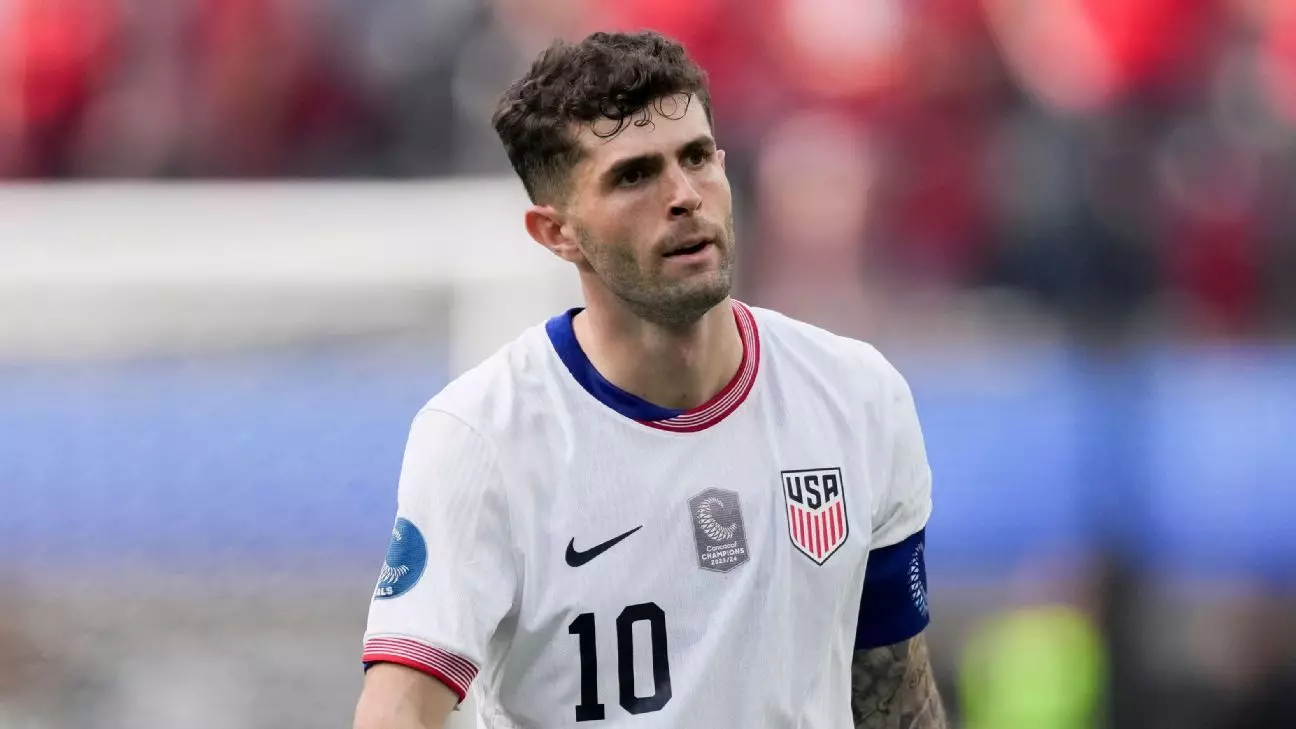In the world of professional sports, the relationship between players and their national teams often invites passionate debates. Recently, a noteworthy controversy arose in U.S. soccer when former player Landon Donovan publicly criticized Christian Pulisic’s choice to withdraw from the upcoming Gold Cup. Donovan’s remarks shine a spotlight on the immense pressure athletes face not only to perform but also to represent their countries. He referenced the dedication of Portugal’s Cristiano Ronaldo, questioning the commitment of U.S. players like Pulisic who choose rest over participation. This critical examination, however, raises more questions than answers about expectations within sports, player mental health, and the implications of taking time off.
The Weight of Representation
Donovan’s stance, asserting that wearing the national jersey should come with unwavering commitment, encapsulates a traditional view of athletic duty. He emphatically articulated a belief that players should prioritize national representation over personal recovery, drawing a parallel between himself and the relentless dedication shown by legends like Ronaldo. Yet, this perspective can be inherently flawed. Athletes are human beings whose physical and mental well-being must be prioritized, particularly in the high-stakes environment of international competition. Forcing players onto the field when they are not fully ready may not only diminish their performance but could also lead to long-term physical and psychological repercussions.
A Shift in Perspective on Player Well-Being
Mark Pulisic, Christian’s father, provided a refreshing counterpoint to Donovan’s critique by taking a nuanced route. Instead of responding with combustible emotion, he accessed the capabilities of AI to construct a dialogue on mental health and the necessity of breaks in competitive sports. His reference to Landon Donovan’s own sabbatical is particularly poignant. In 2012-2013, Donovan stepped away from the game to recharge, illustrating that even the most dedicated athletes can reach their limits. This begs the question: should the narrative around commitment evolve to acknowledge the importance of rest and recovery as pivotal components of an athlete’s career?
Balancing National Pride and Personal Health
As we navigate this complex landscape, it becomes evident that the dichotomy between national pride and personal health must be carefully balanced. Critics who accuse players of abandoning their commitment may overlook the broader implications of a player’s choice. Choosing to skip the Gold Cup can be about strategizing for an upcoming World Cup, ensuring that athletes return to peak condition for larger tournaments. Pulisic’s decision emphasizes a forward-thinking approach—safeguarding long-term careers over short-term participation.
Athletes today are increasingly vocal about mental health, with many understanding that protecting their mental state is just as vital as physical training. The discussion initiated by Donovan and echoed through Mark Pulisic’s clever retort showcases a paradigm shift. Although the love for one’s country is paramount, it is essential to integrate self-care into the ethos of athletics.
The Ripple Effects of Decisions
Moreover, Pulisic’s choice sets a precedent for younger players who may feel pressured to conform to a certain standard of commitment. How many aspiring athletes will benefit from understanding that they can prioritize their well-being without facing ostracism? The sports culture often celebrates the “grind” mentality, which can lead to detrimental effects on athletes’ mental health. With equity in representation being a hot topic in sports, the debate extends into how we honor players who choose to advocate for their well-being.
As the U.S. soccer landscape evolves, it is imperative to foster an environment that respects the individual journeys of players. The tension between sacrifice for the jersey and the necessity of self-care has never been more pronounced. By listening to the voices of both current and former athletes, a shift towards prioritizing well-being may emerge, reflecting a more comprehensive understanding of what it means to be not just champions on the field, but resilient individuals off the field too. The emerging dialogue around these decisions promises to reshape how future generations of athletes approach commitment and self-care, ushering in a much-needed evolution in sports culture.

